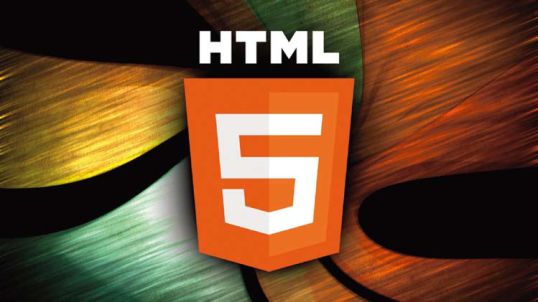
Perhaps you have discovered that a fun and interesting HTML5 page will gain far more user attention in WeChat Moments than those ordinary independent applications. As there are more and more mobile applications and promotion becomes more and more difficult, should your product also have an HTML5 page?

If the answer is yes, then maybe you can try Amaze UI, an open source HTML5 front-end framework. Using the web components, JS plug-ins and cascading style sheets (CSS) it provides, you can quickly to build an HTML5 product.
For those users who frequently access web pages on mobile devices, you may have noticed that a web page can basically be divided into several major parts: menu, title bar, picture gallery, content list, and dividing line. In Amaze UI, the official provides a variety of web components, and you can even build HTML5 products like building blocks.
In addition to the main web components mentioned above, such as folding panels, headers, footers, image carousels, tabs, introductions, and paragraphs, these are all web components that developers can use directly in Amaze UI. . Since Amaze UI is an open source product, some third-party developers are constantly contributing specialized components to it. For example, when it comes to geographical location, users may need a map guide, then you can integrate the "Baidu Map" component; you may need a comment system under the article, then you can use "Say more" " component; some service web pages may require customer service, in which case the "Meiqia Customer Service" component will naturally come in handy.
Of course, some developers may say that these elements are only part of a Web site. When you actually make a Web site, you may also need various interactive effects and text scheduling styles. At this time, the usefulness of Amaze UI's JS components and CSS components becomes apparent.
Through JS components, developers can obtain a series of UI enhancement effects, such as warning boxes, smooth scrolling, loading progress bars, pop-up boxes, modal windows, drop-down components, button interactions, etc. Through CSS components, developers can directly integrate HTML elements such as buttons, forms, and tables, and use page components such as badges, breadcrumbs, and button groups.
Currently, Amaze UI has a total of nearly 20 CSS components, 10 JS components and 17 Web components containing nearly 60 themes. According to CEO Chen Benfeng, compared with some foreign Web front-end frameworks, Amaze UI will be more powerful. Give more consideration to the needs of Chinese users. For example, in terms of font layout, the Bootstrap front-end framework does not define Chinese fonts, so the display effect of your webpage may be different under different systems and browsers. However, in Amaze UI, Chinese fonts are defined and targeted. Browsers with a relatively high domestic market share have been optimized, so this situation can be avoided.
For those companies that are trying to make HTML5 products, you may still be in the shadow of Facebook, LinkedIn and other big companies "defecting" from HTML5 apps to native apps, because even today, some people are talking about HTML5 I will also give the above example. However, Shinji Ikari, an engineer who once worked on the Chrome team, told PingWest that the reason why Facebook made HTML5 apps so slow in the first place was more due to Facebook itself, rather than because HTML5 was not good. Because technically speaking, the disadvantage of HTML5 is not that it is slow, but that it cannot scale. At that time, Facebook's HTML app was still using XML, so it can be said that their technology was quite backward.
In order to prove that the performance of HTML5 apps is not inferior to native applications, two engineers from Google specially made a Fastbook HTML5 app to show that Facebook’s “defection” is not the fault of HTML5. According to Shinji Ikari, the performance of HTML5 apps could catch up with native apps two years ago, let alone now!
Then you may be curious, since the performance of HTML5 is not inferior to native apps, why are there so few high-quality HTML5 apps that we usually see? Regarding this, Chen Benfeng feels that this is more due to the lack of technical accumulation of developers in this field.
Shinji Ikari also said that for many applications, writing native apps is almost inevitable. If you are writing a 3D game and do not need any DOM (Document Object Model), then there is no reason to use HTML at all. Not only will using JavaScript not make your job easier, it will make your project progress worse. However, mobile applications like Facebook are just a list, and there is nothing beyond the scope of HTML5. You should be comfortable using HTML5, so many times large companies do not have much reference value for technology selection.
Well, after explaining that HTML5 is not as weak as people think, you may feel that these components in Amaze UI are not enough to make the product you want. This is one of the reasons why Amaze UI chooses to be open source - Let the community contribute more content to it. If you are planning to make HTML5 products now, even if you do not choose the Amaze UI framework, don’t let cases like Facebook and LinkedIn stand in your way.
 What are the production methods of html5 animation production?
What are the production methods of html5 animation production?
 The difference between HTML and HTML5
The difference between HTML and HTML5
 What to do if the login token is invalid
What to do if the login token is invalid
 Is Huawei's Hongmeng OS Android?
Is Huawei's Hongmeng OS Android?
 How to solve the problem that the print processor does not exist
How to solve the problem that the print processor does not exist
 What are the common tomcat vulnerabilities?
What are the common tomcat vulnerabilities?
 Solution to socket error 10054
Solution to socket error 10054
 Formal digital currency trading platform
Formal digital currency trading platform




